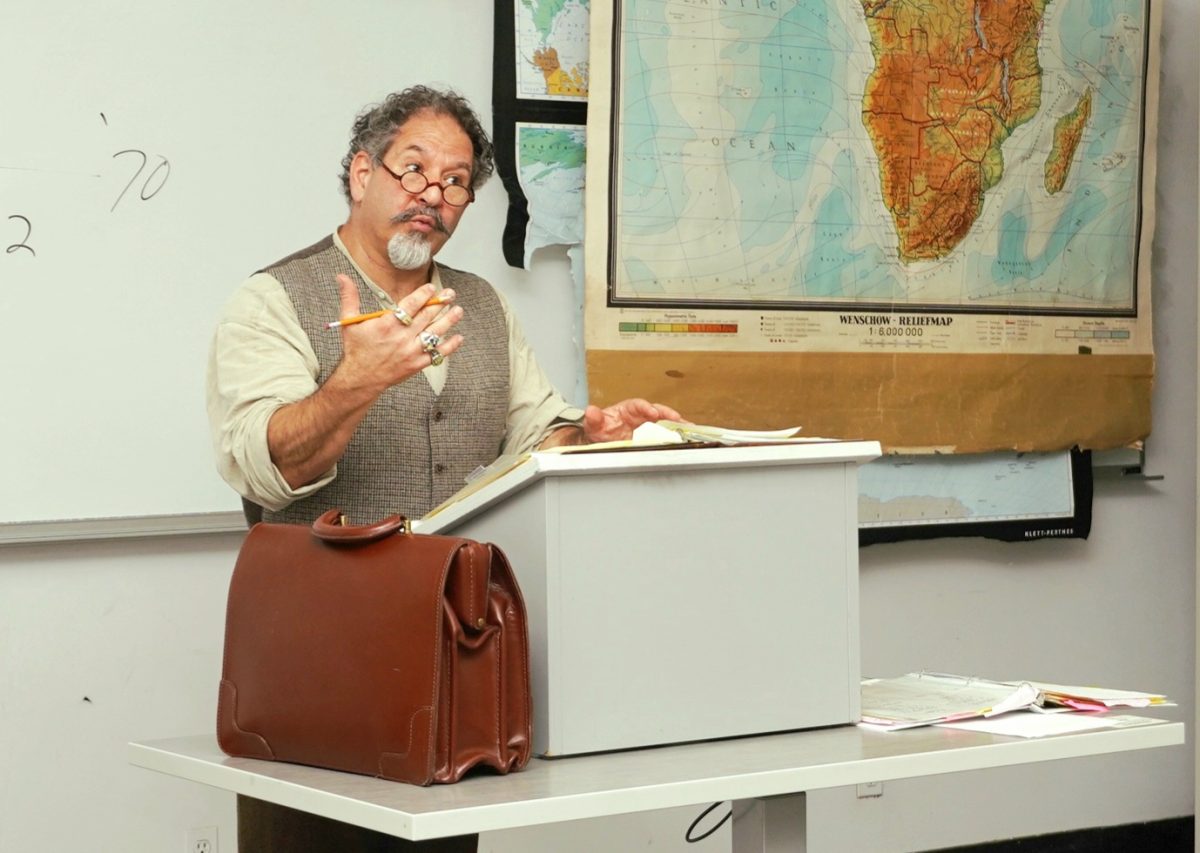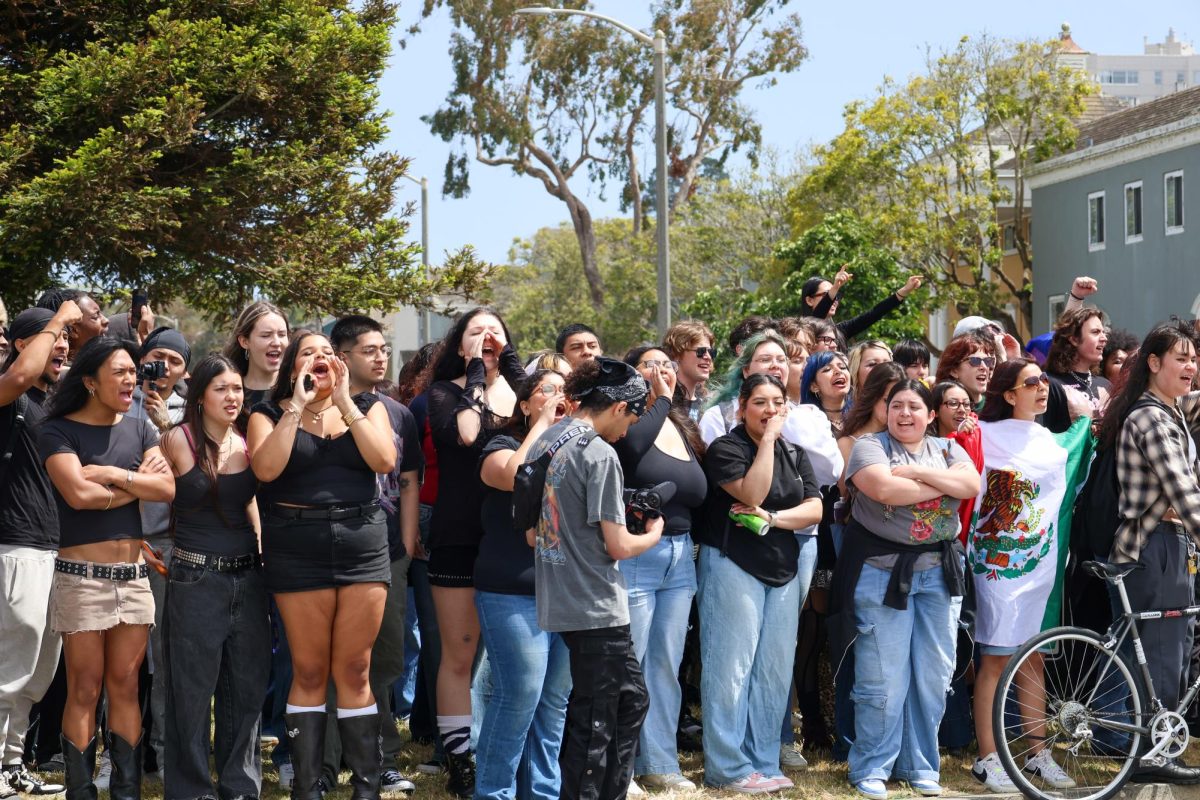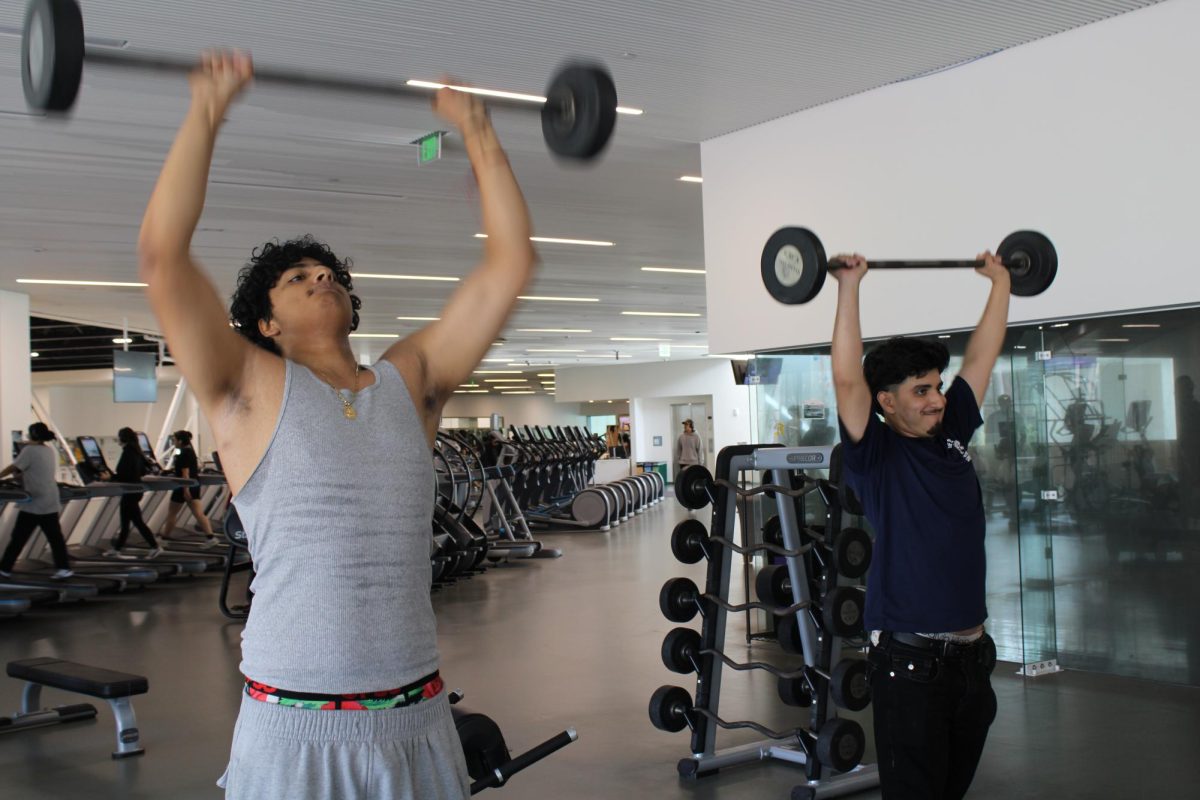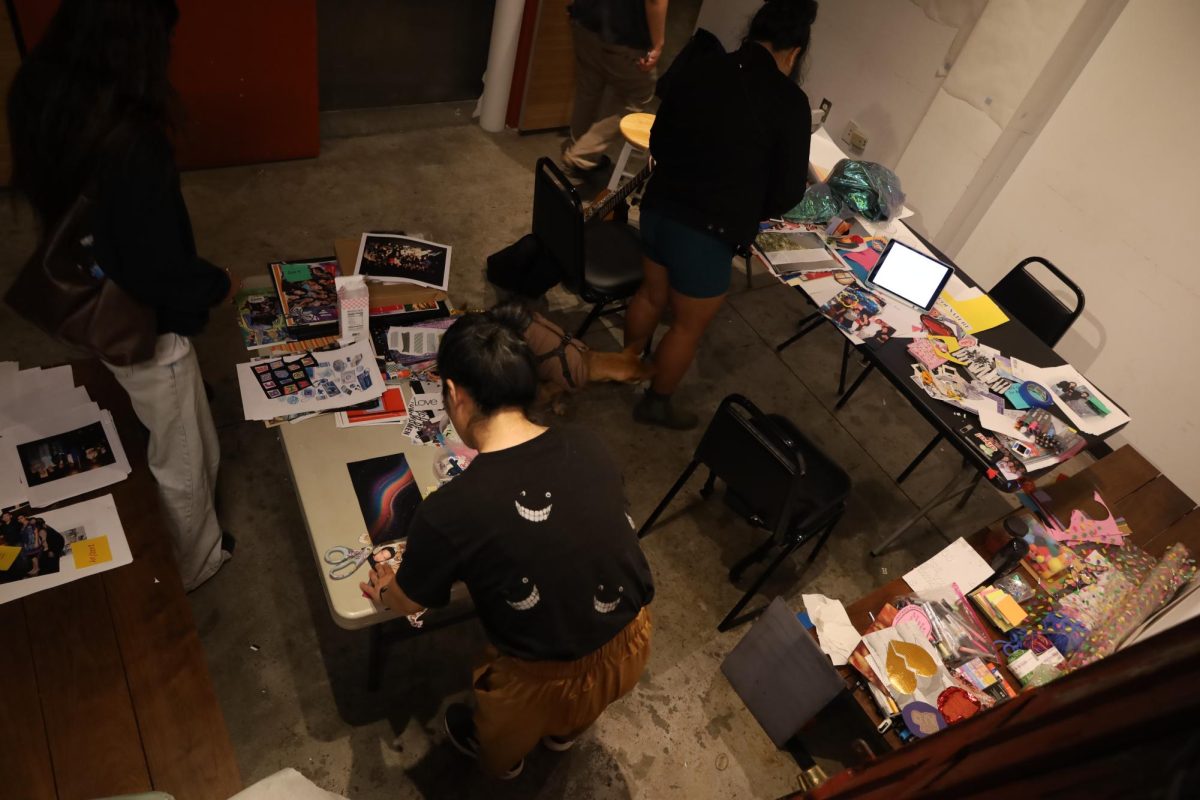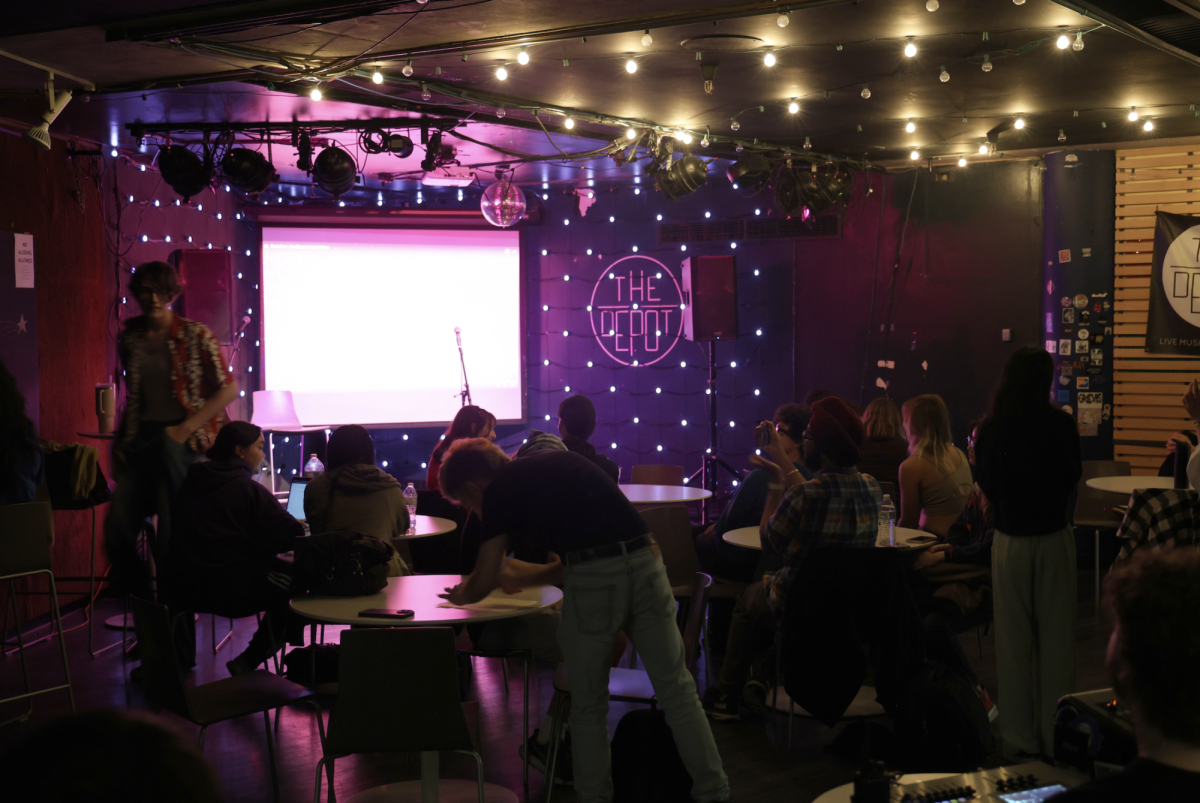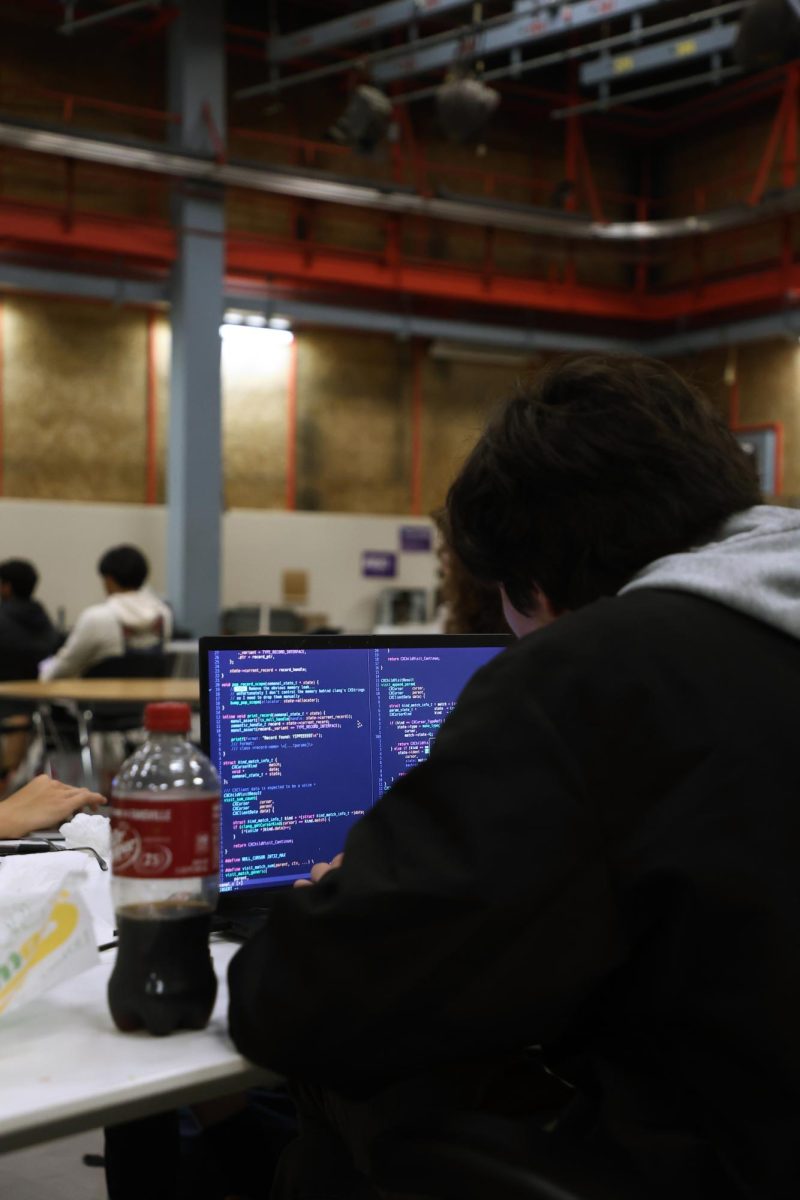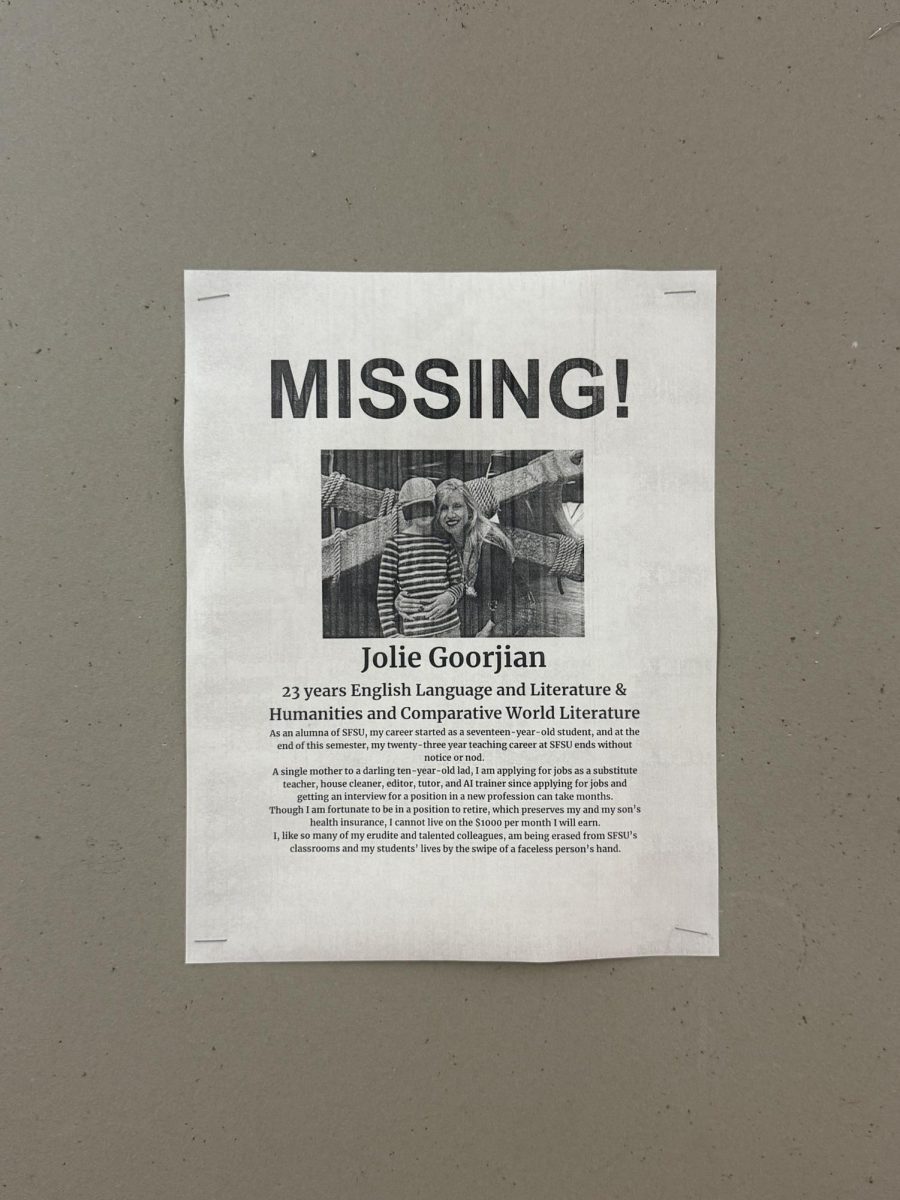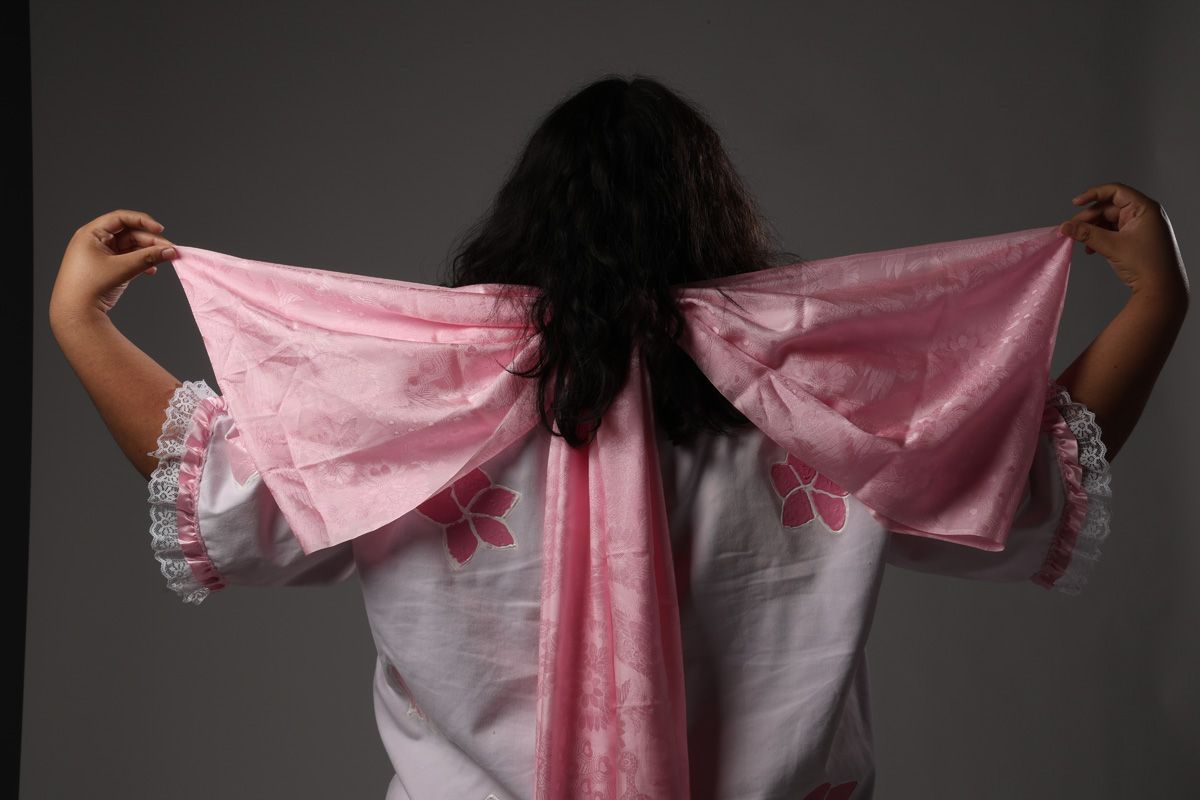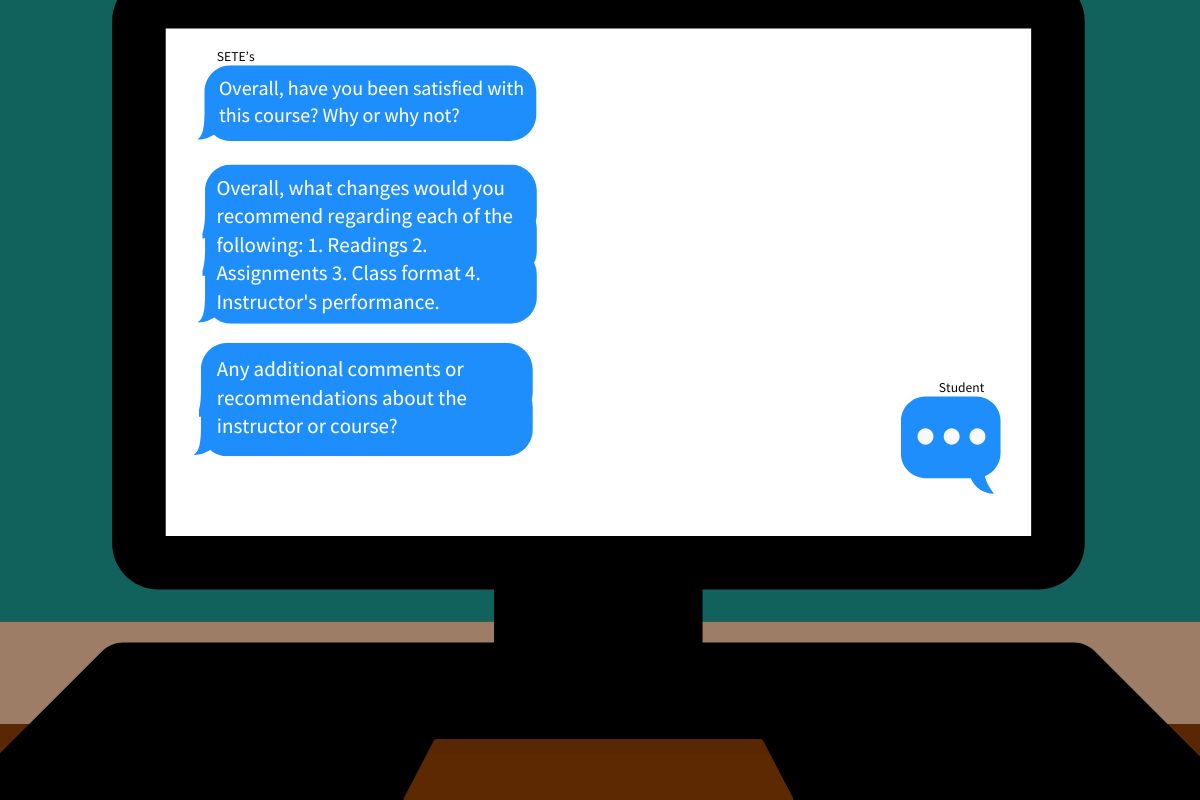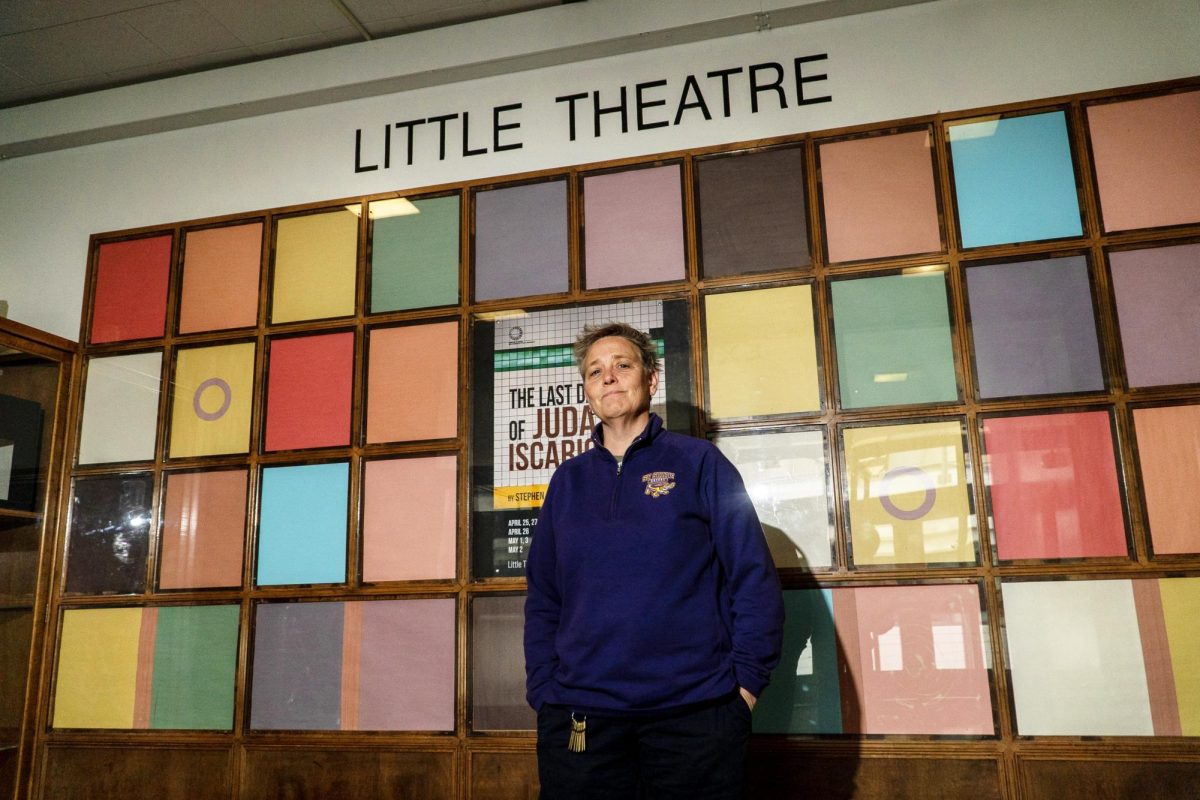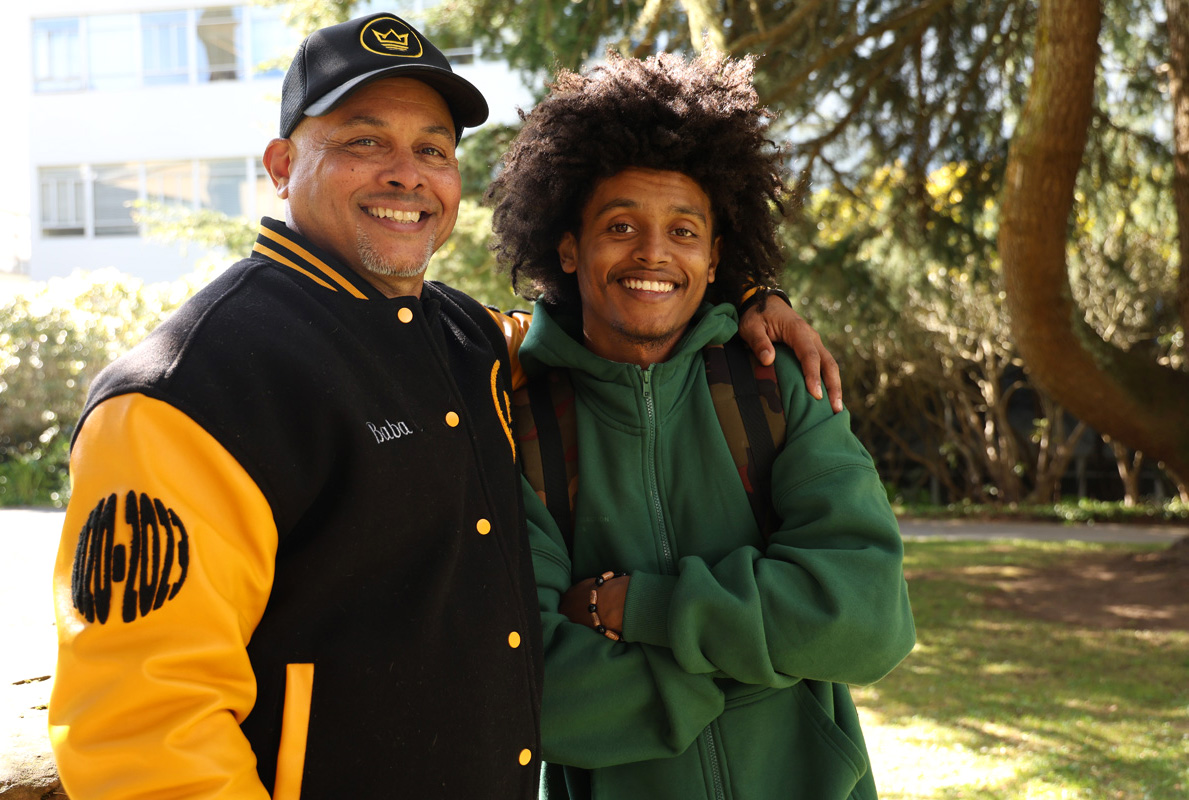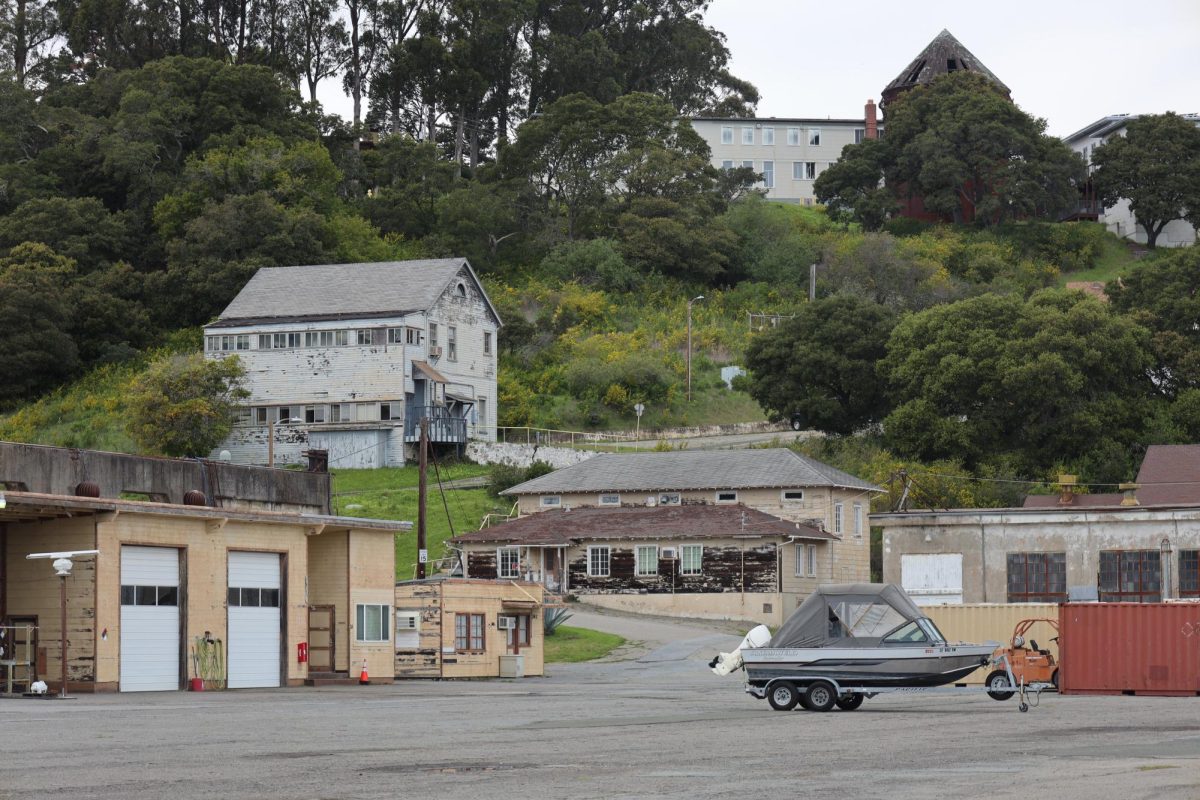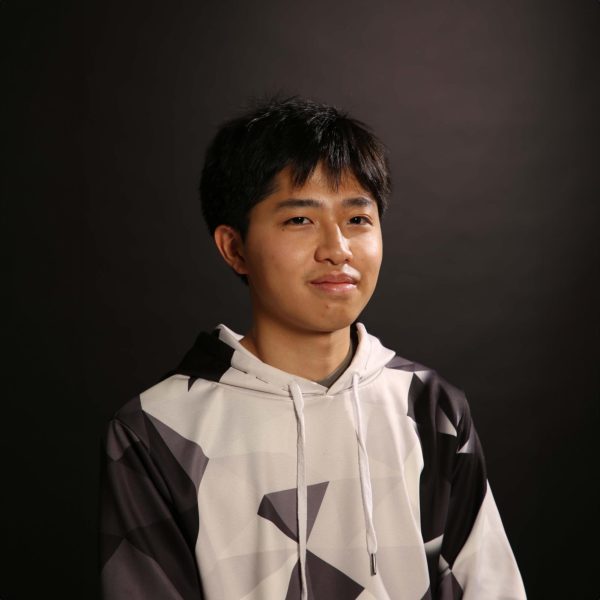At the beginning of every class, students are greeted with “Joy, students, joy!” in the booming New York accent of Carlo Corea. The use of phones, laptops and other devices is banned in his classes, encouraging students to watch him as he enthusiastically talks about history.
Corea, who holds a doctorate in history, has been teaching the subject at SF State since 2003, but is currently only teaching one course. Due to possible layoffs, he’s unsure if he will continue to be on campus.
“My job is at risk. My understanding is I may not be here next semester,” said Corea. “I love what I do. It’s not a burden, it’s not difficult. I don’t get up in the morning and say ‘I don’t want to go to my job,’ I absolutely love it.”
Corea said he has an affinity with students who are the first in their families to attend college.
Born in 1965, Corea grew up in the Bronx. Neither of Corea’s parents went to college or finished high school. His father was an immigrant from Italy and his mother grew up in difficult circumstances.
“That was a kind of working-class world that I grew up in, so most people that I grew up with were not going in the direction of college,” Corea said. “In fact, they didn’t know much about it at all, and neither did I.”
Corea started working as a gas station attendant when he was 11 years old.
“That was my first job, then I started to do things like construction […] I did wallpapering and painting. I’ve worked in a horse farm,” Corea said. “I did all kinds of strange and unusual jobs that I thought were going to be very interesting and sometimes they were, sometimes they weren’t.”
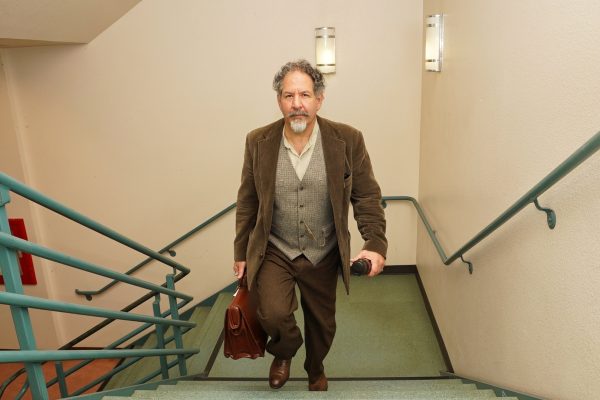
He worked every summer and saved as much as he could, but in middle school and high school Corea was struggling.
“I was inattentive because I was a bit of a troublemaker. I really loved school, but I wasn’t good at school,” Corea said. “Middle school was horrible. There was a lot of drugs. There was a lot of violence. ”
Because of these circumstances, community college was the most viable option for him.
“I took courses in everything, principally because I had no direction,” said Corea.
After two years, he transferred to the State University of New York at Albany, where he received a bachelor’s in history and political science. He then spent a year earning his secondary education teaching credential.
Corea spent all the money he’d saved from working to buy a plane ticket to Europe. He was trying to replicate the Grand Tour: an educational, multiyear trip that young wealthy European men took in the 17th, 18th and 19th centuries to complete their education.
“I couldn’t afford a train pass,” said Corea. “They had something called Eurail, I couldn’t afford that, I hitchhiked everywhere.”
After returning to the U.S., he resumed his education to get his master’s degree at the State University of New York at Stony Brook, also known as Stony Brook University. There, Corea became a doctoral candidate with Matthew Jacobson as his advisor. Jacobson is currently a Sterling professor of American studies and history and a professor of African American studies at Yale University.
“Carlo was one of my first graduate students and one of the most memorable,” Jacobson told Golden Gate Xpress in an email. “He was thoughtful, insightful, intellectually generous, whip-smart, and deeply engaged. He was also very resourceful. I remember that for his project on race, ethnicity and the juvenile delinquency apparatus. He actually went to court to have some early twentieth-century documents unsealed. And he won.”
On Corea’s teaching skills, Jacobson had nothing but kind compliments.
“Even in Carlo’s earliest teaching assistantships he was already proving himself a gifted teacher—gentle in demeanor but exacting in his intellectual rigor, kind, expressive, funny, and generous with his time and energy,” said Jacobson.
After Corea defended his doctoral dissertation in 2001, he briefly taught at CSU East Bay but started teaching at SF State three years later.
When he was an undergraduate student, he didn’t feel supported and rarely talked to instructors. As a teacher of undergraduates now, he believes it’s important to establish one-on-one relationships with students.
He strongly encourages students to visit him during office hours, which he provides four to five days a week, even offering tea and cookies to those who do.
Two of those students are Mayuu Kashimura and Emily Fletcher. HIST 120 They both took a course taught by Corea in the Spring 2023 semester and are currently in HIST 471 this semester.
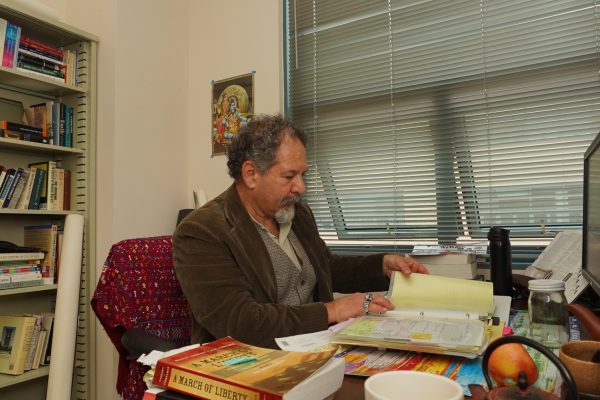
“Dr. Corea’s ability to connect several smaller historical events into overarching narratives is very compelling,” said Kashimura. “His enthusiasm for history is infectious, and you can tell he really cares about his students.”
Fletcher said that Corea’s ability to connect historical and current events helped her understand U.S. history—a topic she struggles with.
“He challenges you to think and doubt anything you may previously have believed,” said Fletcher. “It is perhaps anxiety-inducing but completely keeps you on your toes and leads you to make rational, factual decisions.”
While it’s unknown if Corea will continue working at SF State, he hopes to teach two courses in Spring 2024: HIST 404, a course on the history of American technology, and HIST 469: American Childhoods.
*This was originally published in Fall 2023. This article was edited for length. Corea is now teaching HIST 121. You can find the full version at goldengatexpress.org.*



